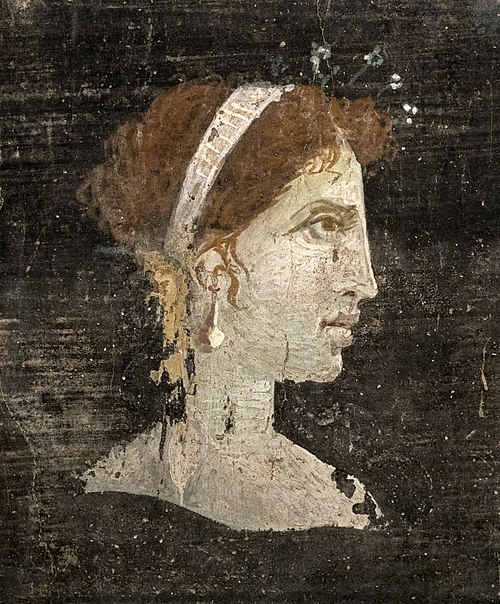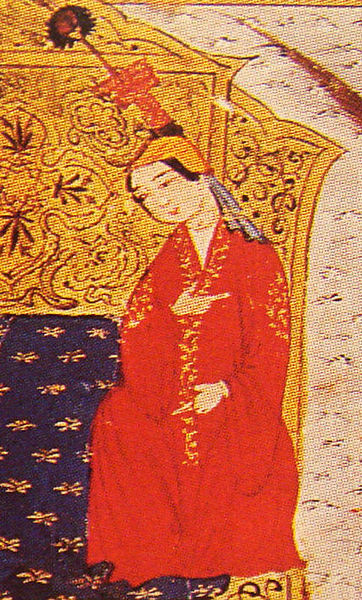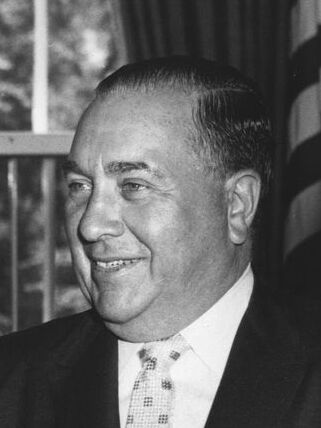
CELEBRATES NEW MARBLE STALL
A Summer Night, A.D. 38
Rome
Incitatus is the most popular person in Rome these days, even though he’s not a person. He’s the emperor’s favorite racehorse, and he put on quite a party last night.
The occasion was a new marble stall that Caligula had built for the happy horse. The stall, complete with a stunning ivory manger, was officially unveiled at the start of the party. Incitatus was arrayed in his purple blankets, wearing his best collar of precious stones.
At dinner Incitatus was afforded the seat of honor, next to the emperor, although he chose to stand throughout the meal.
Guests cheered when he was served a bowl of golden barley.
It was agreed by everyone that Incitatus’s table manners were impeccable. No one said a word about his habit of relieving himself during dinner. The crème of Roman society found him nothing short of delightful- and quite witty.
After the meal, Emperor Caligula, thrilled to see that Incitatus was such a hit with his guests, announced that he was thinking of making him consul.
The guests unanimously voiced their approval.
But seriously…
February 14, 2022
Caligula, the third emperor of Rome, was a brutal dictator with an impish sense of humor. Known for the flamboyance of his excesses, the senators feared him, but the Roman people loved him.
His father, Germanicus, was tremendously popular in his day. He was a general admired by his men; a fighter respected by his enemies; and later, a diplomat idolized by the populace. A great man in a time of great men, a true war hero in an age of war heroes, Germanicus could have been emperor. When Augustus died, the legions loyal to Germanicus were prepared to proclaim him the new Augustus. All he had to do was say the word. He chose to support Tiberius, and served the new emperor and Rome in a brilliant career as an ambassador, which endeared him even more to the people. The irony is that the very qualities that caused him to turn down the job- integrity, duty, and sound judgement- were the qualities Rome needed in an emperor. It got something very different in his son.
Germanicus’s boy, whose real name was Caius Caesar, grew up in military camps, and was a favorite- almost a mascot- of the troops. They gave him his name, Caligula, as a term of affection. The caliga was a boot, thickly studded with hobnails, worn by common soldiers. One day little Caius’s daddy placed him a pair of these boots in order to please the soldiers. A nickname was born amid the sound of jovial laughter.
As an emperor, at first it appeared he would be wise and competent. He began a building program in the capital, and secured a peace with the enemy Parthian Empire.
Then, seven months into his tenure, he suffered a serious illness, from which he emerged a new man, but not for the better. After that he seemed to dedicate his life to pleasure and debauchery.
He didn’t, as some emperors did, kill his way to the top. His trajectory was to fall into a sordid corruption, laughing all the way down.
Monster
The historian Suetonius, after outlining the emperor’s achievements, stated – in a wonderful line that shows that ancient historians had a sense of humor:
“So much for Caligula as emperor; we must now tell of his career as a monster.”
History is filled with men who are corrupted by power, and show themselves to be venal, vindictive, treacherous, greedy, lustful, mad for glory, and just plain mean. But no ruler seemed to have as much fun as Caligula in exploiting his authority for his own amusement.
His humor was whimsical, audacious, and often winning, but it was ultimately sadistic.
When kissing the neck of his wife or mistress, he would say,
“Off comes this beautiful head whenever I give the word.”
The man who could joke about putting his horse in the prestigious office of consul, could in all seriousness have senators removed or killed.
The jokes aren’t quite as funny when you are obliged to laugh at them, at the peril of your life.
He was the beneficiary of great gifts. The great-grandson of the first emperor and the nephew and adopted son of the second, he was as well-connected as anyone in Rome. He benefited from the legacy and example of his father. He enjoyed the support of the people and the love of the legions. And he possessed a great natural charm. He could have been one of the great rulers of history. But, like so many kings before and after him, he squandered his gifts.
So, the darling boy scamping about in soldiers’ boots grew up to tyrannize an empire. Yes, he may have added his own color and flavor to the mayhem. But for the victims, a monster- however charming- is still a monster, and every tyrant is just a tyrant.
Sources
Caligula: The Corruption of Power, Anthony Barrett
Chronicle of the Roman Emperors, Chris Scarre
The Twelve Caesars, Suetonius
Tacitus, Lives of the Emperors





